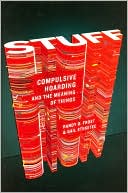Category Books
- Fiction Books & Literature
- Graphic Novels
- Horror
- Mystery & Crime
- Poetry
- Romance Books
- Science Fiction & Fantasy
- Thrillers
- Westerns
- Ages 0-2
- Ages 3-5
- Ages 6-8
- Ages 9-12
- Teens
- Children's Books
- African Americans
- Antiques & Collectibles
- Art, Architecture & Photography
- Bibles & Bible Studies
- Biography
- Business Books
- Christianity
- Computer Books & Technology Books
- Cookbooks, Food & Wine
- Crafts & Hobbies Books
- Education & Teaching
- Engineering
- Entertainment
- Foreign Languages
- Game Books
- Gay & Lesbian
- Health Books, Diet & Fitness Books
- History
- Home & Garden
- Humor Books
- Judaism & Judaica
- Law
- Medical Books
- New Age & Spirituality
- Nonfiction
- Parenting & Family
- Pets
- Philosophy
- Political Books & Current Events Books
- Psychology & Psychotherapy
- Reference
- Religion Books
- Science & Nature
- Self Improvement
- Sex & Relationships
- Social Sciences
- Sports & Adventure
- Study Guides & Test Prep
- Travel
- True Crime
- Weddings
- Women's Studies
Stuff: Compulsive Hoarding and the Meaning of Things »

Authors: Randy Frost, Gail Steketee
ISBN-13: 9780151014231, ISBN-10: 015101423X
Format: Hardcover
Publisher: Houghton Mifflin Harcourt
Date Published: April 2010
Edition: (Non-applicable)
Author Biography: Randy Frost
DR. GAIL STEKETEE is a professor and acting dean at Boston University in the school of social work.
DR. RANDY FROST is a professor of psychology at Smith College and an internationally known expert on obsessive-compulsive disorder and compulsive hoarding, as well as the pathology of perfectionism.
Book Synopsis
What possesses someone to save every scrap of paper that’s ever come into his home? What compulsions drive a woman like Irene, whose hoarding cost her her marriage? Or Ralph, whose imagined uses for castoff items like leaky old buckets almost lost him his house?
Randy Frost and Gail Steketee were the first to study hoarding when they began their work a decade ago; they expected to find a few sufferers but ended up treating hundreds of patients and fielding thousands of calls from the families of others. Now they explore the compulsion through a series of compelling case studies in the vein of Oliver Sacks. With vivid portraits that show us the traits by which you can identify a hoarder—piles on sofas and beds that make the furniture useless, houses that can be navigated only by following small paths called goat trails, vast piles of paper that the hoarders “churn” but never discard, even collections of animals and garbage—Frost and Steketee illuminate the pull that possessions exert on all of us. Whether we’re savers, collectors, or compulsive cleaners, very few of us are in fact free of the impulses that drive hoarders to the extremes in which they live.
For all of us with complicated relationships to our things, Stuff answers the question of what happens when our stuff starts to own us.
The New York Times - Peter D. Kramer
If Frost and Steketee have difficulty constructing a coherent new vision of compulsive hoarding, it is because they are too observant and too dedicated to the relief of suffering to make a complex phenomenon simple. They are collectors in their own right, stocking a cabinet of curiosities with intimate stories and evocative theories. To those who need to understand hoarders, perhaps in their own family, Stuff offers perspective. For general readers, it is likely to provide useful stimulus for examining how we form and justify our own attachments to objects.
Table of Contents
Subjects
 Health
Health  Addiction & Recovery
Addiction & RecoveryNonfiction
 Psychology
Psychology  Psychological Disorders
Psychological DisordersSelf Improvement
 Addiction & Recovery
Addiction & Recovery  Addiction - General & Miscellaneous
Addiction - General & MiscellaneousSelf Improvement
 Psychological Self-Help
Psychological Self-Help  Psychological Self - Help - General & Miscellaneous
Psychological Self - Help - General & MiscellaneousSelf Improvement
 See All
See All  Self - Improvement
Self - Improvement
